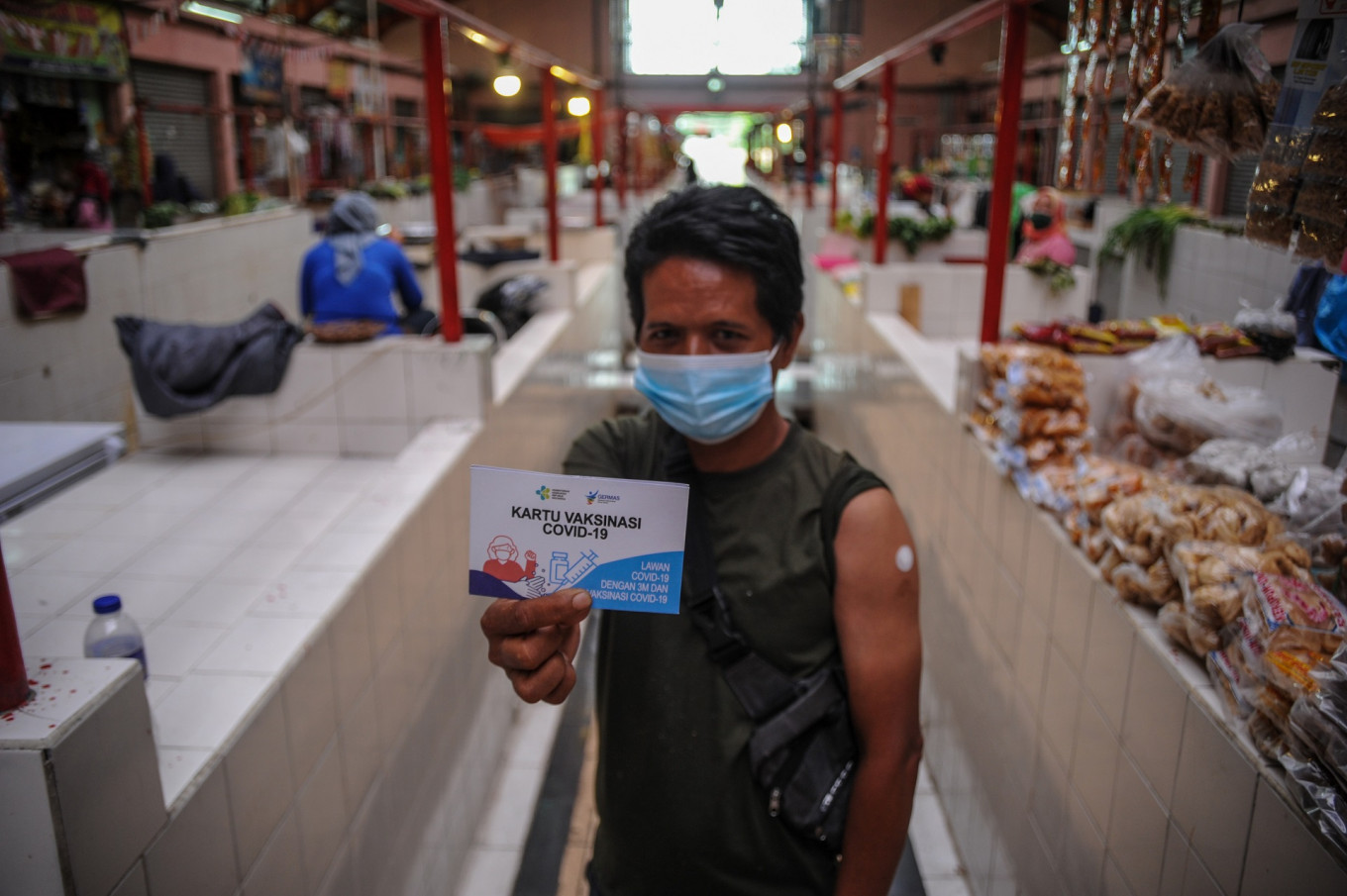Popular Reads
Top Results
Can't find what you're looking for?
View all search resultsPopular Reads
Top Results
Can't find what you're looking for?
View all search resultsSelf-paid COVID-19 vaccine program delayed after uproar
State-owned pharmaceutical company PT Kimia Farma has delayed the rollout of its privately paid COVID-19 vaccine program a day after announcing it would begin offering the service at certain clinics starting this week.
Change text size
Gift Premium Articles
to Anyone
S
tate-owned pharmaceutical company PT Kimia Farma delayed the rollout of its privately paid COVID-19 vaccine program on Monday, a day after announcing it would begin offering the service at certain clinics starting this week.
The decision came after public backlash against the program, with critics contending that vaccination should be free for everyone.
“We are very sorry to announce that the vaccination program, initially set to start on July 12, is delayed until further notice,” Kimia Farma corporate secretary Ganti Winarno wrote in a statement on Monday.
He did not mention the public criticism but cited the “high enthusiasm and many questions” the company had received as the reasons for the delay.
“The management has decided to prolong the time to raise public awareness about the Gotong Royong individual vaccination scheme and to organize the registration process for recipients,” the statement read.
Read also: Jokowi faces rumblings of discontent as pandemic crisis deepens
On Sunday, Kimia Farma announced it would offer the Sinopharm vaccine at eight clinics in six cities of Java and Bali, as part of the Gotong Royong private vaccination scheme.
The government revised the Gotong Royong scheme early last week through a Health Ministry regulation that effectively allowed Kimia Farma to offer the service to anyone willing to pay Rp 879,000 (US$60) for two doses of the Sinopharm vaccine. But the new regulation was only made known the public on Sunday.
Initially, the scheme had allowed only private and state-owned companies to buy vaccine supplies from the government for distribution to employees and their family members free of charge.
The change in policy and Kimia Farma's Sunday announcement immediately made rounds on social media and drew criticism from civil society groups, which called the expansion an attempt to "commercialize vaccination and profit from the pandemic", while vaccines were supposed to be a public good.
Read also: Private vaccination talks could spell 'bad news' for those most at risk
“The [expansion of] Gotong Royong vaccination is not only unethical, it can also create confusion and the wrong public perception that [commercial] vaccines are better than the free ones,” Indonesian Consumers Foundation (YLKI) head Tulus Abadi wrote in a statement on Monday.
Kimia Farma officials said the company was not seeking financial gain from the privately paid inoculation program and that the pricing scheme had been reviewed by an independent body and was in accordance with Health Ministry regulations.










